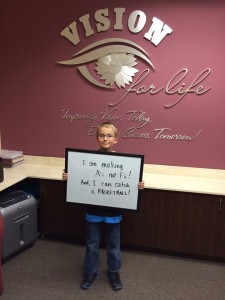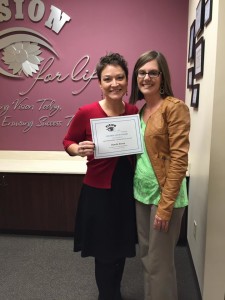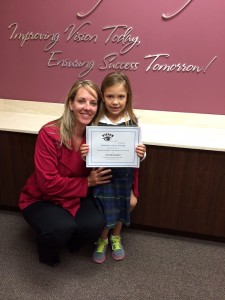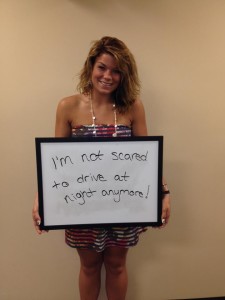In 2014, we treated 45 patients for the following vision conditions, most with multiple problems that developed from lack of treatment of the initial issues:
- Amblyopia or Lazy Eye – 9 patients who suppressed the vision of one eye. Cover your eyes alternately while reading and see if one eye sees more clearly than the other.

- Binocular Vision Dysfunction – 38 of the 45 patients displayed this problem in which the eyes do not see the same image together, forcing heavy strain on the eye muscles to achieve single focus vision.
- Convergence insufficiency – 28 patients whose eyes did not converge together for proper focusing of an image or words – the vision problem most often mistaken for ADHD.
- Double vision – 19 patients who frequently saw two, overlapping images of the same object.
- Decreased stereopsis or Poor Depth Perception – 15 patients had trouble seeing in 3D, which generates clumsiness, poor hand-eye coordination and poor sports performance, and often creates a lack of spatial awareness and fear of heights.
- Oculomotor Dysfunction or Eye Movement Disorder – 28 patients were unable to consistently track words across a page clearly and smoothly, or to fixate their eyes on one word at a time. This condition causes a person to avoid schoolwork due to the discomfort of trying to see words that are blurry and jumpy. It often gets mistaken for dyslexia or ADHD.

- Strabismus – 21 with outward eye turns (exotropia); 6 inward turns (esotropia); and 19 hypertrophic vertically misaligned eyes. These are common eye problems not always physically noticeable. Because it is difficult to focus with eyes that don’t match up, strabismus will produce a short attention span and the refusal to do homework or read, and is another condition mistaken for ADHD.
- Reduced Visual Attention Span – 36 of the 45 patients failed a specialized peripheral vision test which reveals how much information a person can be visually attentive to. The inability to maintain visual attention is commonly mistaken for ADHD but is instead often caused by untreated vision problems.
We are proud that all 45 of our patients completed vision therapy which lessened or completely relieved their symptoms. We would love to help you too. Please contact us today.

